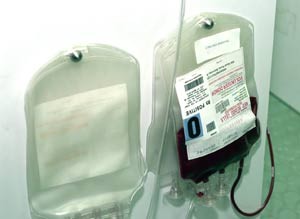 Two years and four days after the starting date of a sentence imposed by the Italian anti-doping tribunal TNA on the basis of suspicious biological passport readings, Italian cyclist Francesco De Bonis has lost his appeal against the sanction.
Two years and four days after the starting date of a sentence imposed by the Italian anti-doping tribunal TNA on the basis of suspicious biological passport readings, Italian cyclist Francesco De Bonis has lost his appeal against the sanction.
The former Diquigiovanni rider had taken an action before the Court of Arbitration for Sport seeking to overturn the 24 month ban, but has failed to do so.
Confirming the sanction originally applied, CAS has commented on the ruling today and explained why 29 year old De Bonis was unsuccessful.
“The sanction had been imposed by the TNA-CONI following the analyses of eight blood samples taken from the athlete between 27 November 2007 and 18 May 2009, in accordance with the procedure applied for the “Athlete Biological Passport” (ABP).
“The CAS Panel rejected the arguments of the athlete in relation to the alleged irregularities committed in the TNA procedure and confirmed that the ABP is a reliable means of proving an anti-doping violation in the sense of the UCI regulations.
“The CAS Panel found De Bonis guilty of having violated Art. 21.2 of the UCI RAD (Use of a prohibited Method) consisting in “enhancement of oxygen transport” (Category M1 WADA Prohibited List) and confirmed the initial decision of the TNA-CONI.”
Today’s decision is another victory for the biological passport, which uses the weight of evidence of several tests to determine guilt. It is a departure from traditional anti-doping tests, which tended to look for a single high reading, breaking set thresholds, or alternatively the presence of a banned substance such as EPO.
The biological passport is essentially a more subtle way of detecting doping than previous existed. However some riders have felt that this left it open to challenge.
The De Bonis verdict strengthens the viability of this method of anti-doping. Several other riders have also been unsuccessful in appealing biological passport cases to CAS. In March former Liquigas rider Franco Pellizotti and former Lampre competitor Pietro Caucchioli both lost their appeals, while in April the past Ag2r La Mondiale pro Tadej Valjavec was found guilty.
Had De Bonis won, his victory would have been largely symbolic as his period of suspension is now up. However in addition to clearing his name, he may have been in a position to seek damages from the anti-doping authorities. He would have escaped the other penalties in his case. When the TAS ruling was handed down in May of last year, he was fined 13,750 euros and told he would have to pay the UCI's expenses.